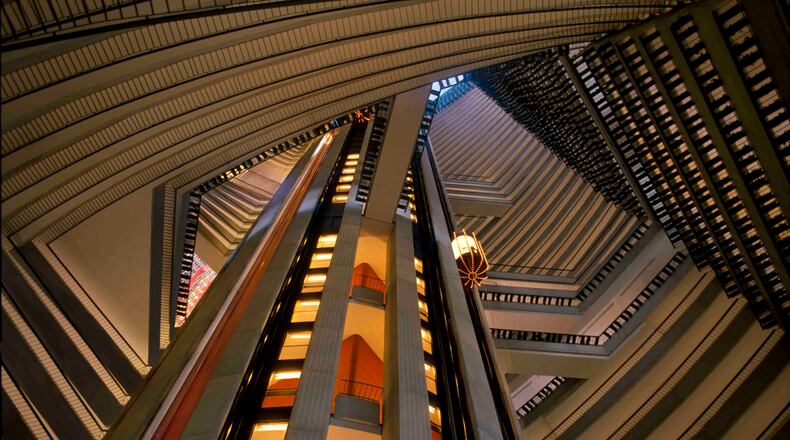John Portman's towering architecture has turned Atlanta into the perfect backdrop for dystopian science fiction movies, according to a new article in The Atlantic.
That's undeniably good for attracting feature films and "The Walking Dead" to shoot here. But is it, you know, good?
"I would propose that looking like a bleak dystopian future is not a good thing in a building or a downtown, and that brutalism is not the optimal mode of architecture for the American South. There was a joke in the '90s that Atlanta is what 300,000 Southerners died to prevent." So said an Atlantic commenter identifying himself as David Kimball.
To which "Mark Jackson" replied: "But, to be fair, those 300,000 Southerners would have been dead by the 1990s anyway."
The conversation quickly evolves into a discussion of the character of Atlanta and how it is perceived from within and without. Is Atlanta a sterile and soulless drive-by town, or is it a vibrant "city in a forest?"
Portman's architecture – examples include the Westin hotel, Peachtree Center, the SunTrust building -- has been variously described as fortresslike, standoffish, brilliant, groundbreaking, etc. But one thing everyone can agree on: it's distinctive, and it both forms and informs the skyline of Atlanta.
It's also a useful metaphor for the character of the city: soaring, hot, cool, materialistic, money-obsessed, forward-looking, remote, unreadable, perpetually in motion (except on 285).
And provocative: what and where is the soul of Atlanta? Does our town even have a soul?
The Latest
Featured

